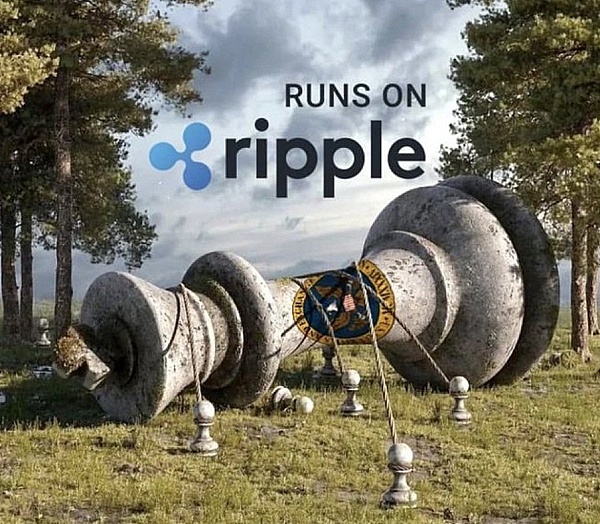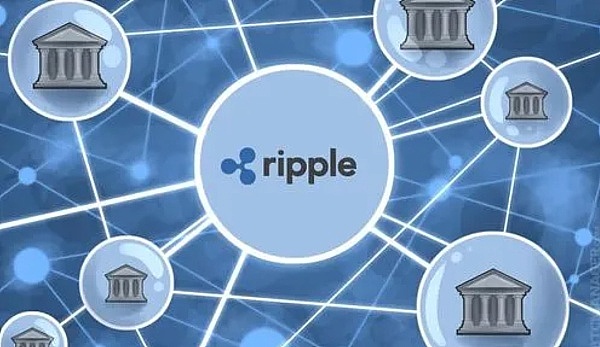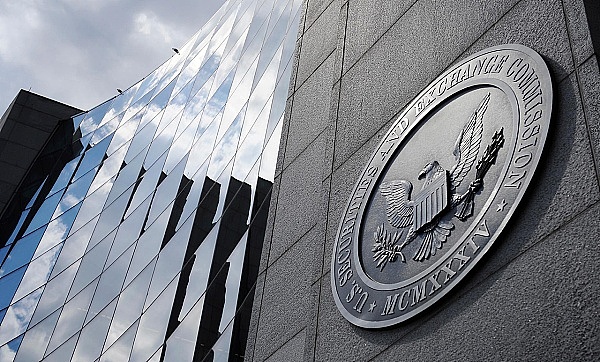A few days ago, Ripple and the U.S. Securities and Exchange Commission (SEC) won a phased victory in the three-year lawsuit, causing the price of XRP to surge 26%.
The judge ruled that Ripple's sale of XRP to retail investors did not violate federal securities laws, and reduced the SEC's fine request by about 94%, from US$2 billion to a fine of US$125.035 million.
It is reported that since the SEC sued Ripple in December 2020, the two sides have engaged in a long legal battle, and Ripple has continued to achieve phased success through legal means, including the court's ruling that XRP itself is not a security.

01 The history of Ripple's feud with the SEC
Ripple's story began in 2004, when Canadian programmer Ryan Fugger released RipplePay, a peer-to-peer payment system that was several years ahead of blockchain technology.
In 2011, cryptographer David Schwartz, Mt. Gox founder Jed McCaleb and video game designer Arthur Britto worked together to develop a more efficient system that did not require proof-of-work mining. This system eventually evolved into the XRP ledger, and Ripple Labs was established.
Over time, Ripple gradually attracted a large number of investors and partners. In 2013, Ripple received $3.5 million in funding, and in 2014, it established partnerships with CBW Bank and Cross River Bank. In 2015, Ripple hired former Yahoo COO Brad Garlinghouse to take a position in the payment network and began to promote the XRP token.

On December 21, 2020, the SEC sued Ripple Labs and its executives, accusing them of conducting an unregistered securities offering. The SEC believes that Ripple's fundraising by selling its XRP tokens violated federal securities laws. After the news was released, the price of XRP fell from $0.58 to $0.21, and multiple crypto exchanges delisted XRP. Ripple CEO Brad Garlinghouse denied the SEC's allegations and said the company would fight the case legally.
Since the SEC's lawsuit, the two sides have launched a protracted legal battle. In the process of responding to the SEC's allegations, Ripple has continuously sought legal support and evidence to prove that XRP is not a security.
——Key Time Points
(1) March 2021: Judge Netburn's ruling
In March 2021, Judge Sarah Netburn ruled that XRP has value and utility, distinguishing it from cryptocurrencies such as Bitcoin. This ruling is significant because it highlights the legal differences between cryptocurrencies and paves the way for future classification and enforcement actions.
(2) May 2021: Ripple’s counterattack
Ripple actively fought back through legal means, claiming that the SEC failed to provide clear guidance, making it impossible for the company to comply with its requirements. Ripple’s legal team emphasized that the SEC’s regulation of cryptocurrencies was inconsistent and lacked transparency.
(3) July 2023: Judge Torres’ partial support
In July 2023, Judge Analisa Torres partially supported Ripple and ruled that XRP itself was not a security. This ruling won Ripple an important legal victory, and the price of XRP rose sharply as a result. However, the SEC did not give up and continued to pursue legal action against Ripple.
(1) Coinbase delists XRP
After the SEC sued Ripple, the cryptocurrency exchange Coinbase quickly delisted XRP. This move had a significant impact on the XRP market, but it also inspired Ripple to further strengthen its legal battle.
(2) Ripple's legal expenses
Ripple spent more than $200 million in legal fees in the process of responding to the SEC's allegations. This shows Ripple's determination and financial support to fight the SEC, and also highlights the importance and complexity of the case.
(3) International cooperation and expansion
Despite legal challenges, Ripple continued to advance its international expansion strategy and established partnerships with a number of financial institutions and partners. This shows that Ripple is still committed to the development of technology and the market in addition to the legal battle.

Throughout the legal battle, Ripple has continued to achieve phased victories, which has not only boosted market confidence in XRP, but also provided valuable legal experience for the entire crypto industry.
02 Latest settlement progress
In March 2024, the SEC plans to ask the judge to impose a $2 billion fine on Ripple Labs.
Ripple Chief Legal Officer Stuart Alderoty said Ripple's response will be submitted next month. In May, the SEC described Ripple's proposed stablecoin as an "unregistered crypto asset" in its revised remedy response brief and insisted on imposing a heavy fine of nearly $2 billion on Ripple.
However, the court ultimately ruled that the SEC's fine request was too high and reduced it by about 94% to only $125 million. This ruling is a major victory for Ripple and the entire crypto industry. After the ruling was announced, the price of XRP rose rapidly, reaching a high of $0.6434, with a 24-hour increase of 19.7%.
Analysts pointed out that although there may be a technical pullback in the future, this ruling has significantly boosted market confidence, and XRP's long-term trend is worth looking forward to.
Conclusion
Ripple's historical grievances with the SEC and the latest settlement progress have not only affected the market performance of XRP, but also had a profound impact on the entire crypto industry. Ripple has demonstrated strong resistance in this legal battle and has achieved a phased victory.
In the future, as the regulatory environment becomes more clear, the crypto industry will usher in more development opportunities. Investors need to pay close attention to market trends, seize investment opportunities, and realize wealth appreciation.
 JinseFinance
JinseFinance
 JinseFinance
JinseFinance Edmund
Edmund Miyuki
Miyuki dailyhodl
dailyhodl dailyhodl
dailyhodl Bitcoinist
Bitcoinist Finbold
Finbold dailyhodl
dailyhodl Beincrypto
Beincrypto Coinlive
Coinlive